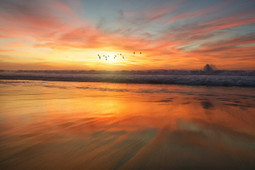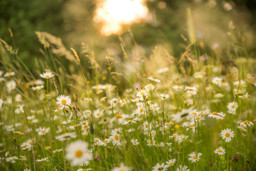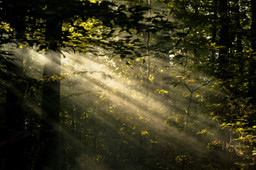
Ecotherapy: benefits of the great outdoors
Also known as nature therapy, ecotherapy involves activities which take place out of doors, in both urban and rural spaces ranging from parks and gardens to farms and woodlands. Though not formally defined, ecotherapeutic practices are led by professionals (generally “trained and licensed in a related area, such as counseling or psychotherapy”, though courses in ecotherapy are becoming available), are based around appreciation of natural environments, and may prioritize an activity rather than focusing directly on participants’ health.
In the global north, increasing urban populations (more than half of the world’s population now live in cities) and reliance on computers, smart phones, and social media have fuelled a dislocation from the natural surroundings which our species evolved to suit. (Journalist and author Richard Louv describes this as “nature-deficit disorder”.)
The resulting dislocation is “leav[ing] us emotionally and physically worse off. […] Our bodies—and our minds—need nature.”

Outdoors therapies may help to address this need, and can be as simple as allowing time to appreciate natural spaces, either alone or in groups. Different types of ecotherapy include:
- Adventure therapy (for example, group rafting or caving)
- Interactions with animals in environments such as farms, or the development of therapeutic relationships with animals including dogs and horses
- Therapeutic farm work, horticulture, or environmental conservation
- ‘Dark nature’ activities (like stargazing)
- Exercise or arts and crafts taking place in green spaces 🌳
- Forest bathing. (Listen to our forest bathing playlist when you’re not able to do the real thing!) .
These activities can have a therapeutic effect in part because they engender “a sense of belonging to something bigger” than participants’ standard day-to-day experiences, and of “not being subject to the world, but being a part of it”.
Although ecotherapy has a focus on mental health, “anyone can reap [its] benefits”. Some US medical practitioners are even writing prescriptions suggesting, for example, “which park […] patient[s] should visit, on which days, and for how long”. Similarly, after being piloted in the Scottish Shetland Islands, a scheme which saw doctors prescribing “long walks, bird-watching and making daisy chains” has been rolled out to other parts of the UK.

Engaging with the natural world can also be beneficial in the most fundamental of ways. For example, it may allow people to adopt the movement-every-20-minutes which underpins the lifestyles of the planet’s most long-lived people. As detailed in Dan Buettner’s The Blue Zones, this dynamic exists in stark opposition to the US model “of sitting at a desk or TV all day and hoping to make it up with 30 minutes at the gym”.
Where does this come from?
Ecotherapy can be seen as the practical application of ecopsychology, a field which uses “ecological and psychological theories and research methodology to study the relationship between people and the natural world”, and “seek[s] to […] expand […] the emotional connection between individuals and the natural environment” as a way to live sustainably and not feel alienated from the natural world.

Formative influences on the field include Professor Emeritus in Psychology Robert Greenway, Nature and Madness (1982) by environmentalist and author Paul Shepard, The Voice of the Earth (1992) by academic and novelist Theodore Roszak, and The Spell of the Sensuous: Perception and Language in a More-than-Human World (1996) by ecologist and philosopher David Abram. The biophilia hypothesis of biologist, naturalist, ecologist, and entomologist EO Wilson, which suggests that humans are innately inclined to seek connections with nature and with other living things, is also a significant influence.
By applying systems theory – the idea that subjects can be “[best] understood in the context of [their] relationships with each other and with other systems” – ecopsychology is based upon the assumption “that people are connected to and impacted by the natural environment”. Harmonizing them with these broader systems, therefore, might improve their mental health.
What are the advantages of ecotherapy?
The concept of ecotherapy is borne out by findings which show a range of benefits derived from spending time in natural spaces. These include:
- “Better health and well-being”
- Benefits in relation to attention deficit hyperactivity disorder (ADHD), dementia, pain, medical recovery, obesity, and post-traumatic stress disorder (PTSD)
- Stress reduction and “positive mood changes” ☁️
- Possible promotion of cooperative behavior
- Reduction of common mental health disorders such as depression and anxiety
- “Help [to] improve relationship skills, [and] reduce […] aggression”
- Developing “trust in oneself, pride and self-esteem”
- “Enhance[ing] social connections, stewardship, sense of place, and increas[ing] environmental participation”
- Providing needs for “intellectual capacity, emotional bonding, creativity, and imagination”
- Improving performance in “cognitive tasks that require working memory and cognitive flexibility”.
Social horticulture, in particular, may also benefit sufferers of abuse, “lonely elderly people, drug or alcohol addicts, blind people, and other people with special needs”.

Increasing interest in ecotherapy is reflective of a broader appreciation of the positive effects of exposure to the natural world. This can be seen in the “booming” nature economy whereby “hotels and spas [are taking advantage of their often intrinsically beautiful locations” and companies are attempting to bring the outside in with green walls and spaces. (Just don’t be fooled into thinking that companies such as Amazon are any the less deplorable for introducing this kind of working environment.)
Are there criticisms of ecotherapy?
Some therapists, such as Dr. Petros Levounis, president of the American Psychiatric Association – who has reservations about therapy taking place out of doors, away from the “tried and true parameters” of classical psychotherapy – “are leery of th[is] emerging discipline”. Apparently unfamiliar with the innovative device known as the umbrella, he wonders “what would happen in the outdoors. It starts raining. What do you do with the patient?”
In contrast, other therapists see ecotheraputic techniques as being beneficial due to the “receptiv[ity] and relax[ation]” they can instill, particularly in younger clients who may resist the prescriptiveness of traditional therapy.
More broadly, certain studies of ecotherapy techniques have been inconclusive, unable to establish causal links between particular activities and their outcomes, or have found that encounters with the natural world, though “rich and fulfilling”, are too “ambiguous, unpredictable, and highly personal” to be treated as a cure-all.

However, these results are not definitive, and exist alongside others which suggest how “enriching” outdoor therapy can be, and that time spent in natural spaces can prompt “a sense of synergy with nature (sky, animals, plants and the cycles of life/seasons)”, contribute to “foster[ing] an intrinsic care for nature” among children, and “benefit [their] well-being in myriad ways”. On these bases, and given the devastation we are continuing to wreak on the natural world, it seems that it would be reprehensible not to take ecotherapy very seriously indeed.
Where can I find local ecotherapy options?
US residents can search for local practitioners, while, in England and Wales, local branches of mental health charity Mind may be able to help locate relevant providers. Although more established in these countries, similar practices to those used in ecotherapy have been used in other parts of the world for millennia or simply use different names. We’ll keep you posted as we discover more resources.
Featured photo by Silviu Zidaru on Unsplash
Earth.fm is a completely free streaming service of 1000+ nature sounds from around the world, offering natural soundscapes and guided meditations for people who wish to listen to nature, relax, and become more connected. Launched in 2022, Earth.fm is a non-profit and a 1% for the Planet Environmental Partner.
Check out our recordings of nature ambience from sound recordists and artists spanning the globe, our thematic playlists of immersive soundscapes and our Wind Is the Original Radio podcast.
You can join the Earth.fm family by signing up for our newsletter of weekly inspiration for your precious ears, or become a member to enjoy the extra Earth.fm features and goodies and support us on our mission.
Subscription fees contribute to growing our library of authentic nature sounds, research into topics like noise pollution and the connection between nature and mental wellbeing, as well as funding grants that support emerging nature sound recordists from underprivileged communities.

